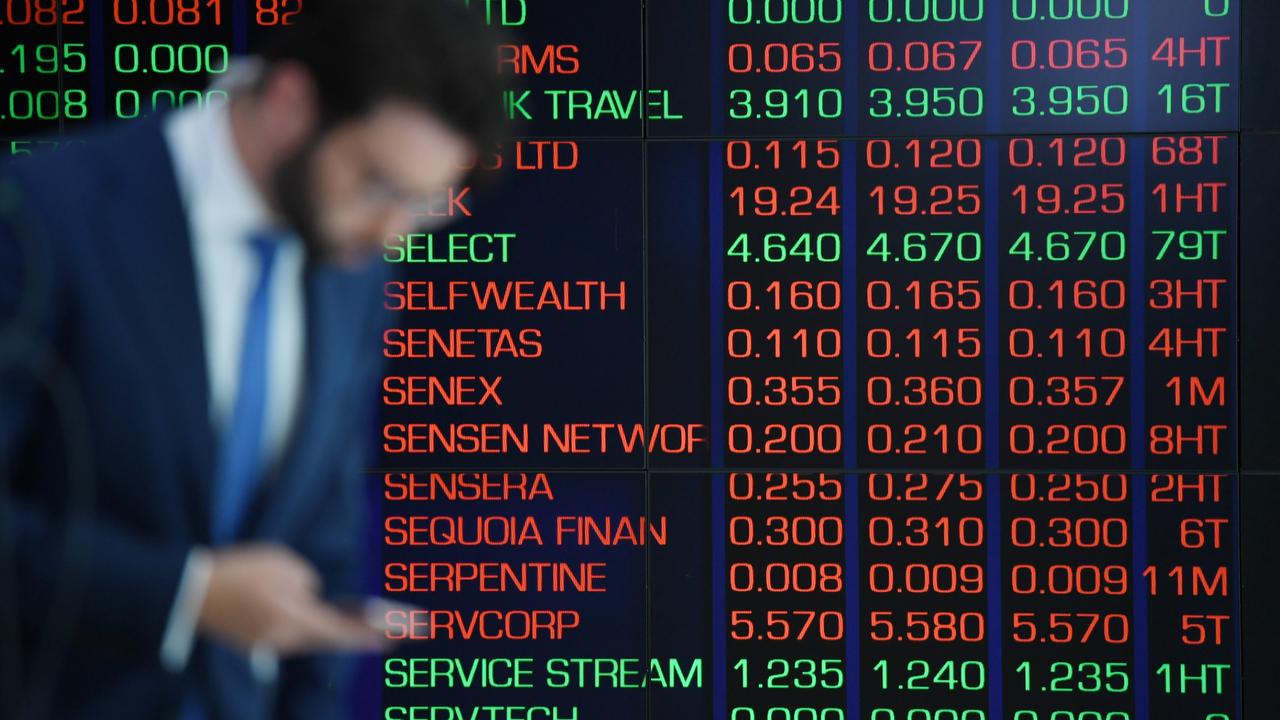
The local share market has suffered its worst drop in three weeks after a domestic inflation readout and cautious commentary from the US Federal Reserve dimmed hopes for quick interest rate cuts at home and abroad.
The benchmark S&P/ASX200 index on Wednesday fell 81.4 points, or 0.92 per cent, to 8,764.5, while the broader All Ordinaries dropped 80.2 points, or 0.88 per cent, to 9,057.6.
The market was already in the red but fell further after the Australian Bureau of Statistics reported consumer prices rose 3.0 per cent in the year to August, slightly more than what economists had collectively predicted, in a sign that inflation remains hard to tame.
Betashares chief economist David Bassanese said the results effectively killed off any fleeting hope the Reserve Bank would cut interest rates next week.
Mr Bassanese said a rate cut on Melbourne Cup day in November was still a "firm favourite," but NAB chief economist Sally Auld predicted the RBA would now keep rates on hold until May. She had previously forecast cuts in November and February.
The Australian dollar spiked to a five-day high after the inflation readout, buying 66.16 US cents, from 65.93 US cents at 5pm on Tuesday.
Overseas, Fed chairman Jerome Powell told business leaders that the US central bank faced a challenging situation, balancing control of inflation with supporting America's somewhat softer labour market.
Capital.com analyst Kyle Rodda said Mr Powell's language was neutral and he had refused to be drawn on when the Fed might next cut rates, which many are hoping the Fed will do at its next meeting in late October.
The ASX's losses did moderate slightly in the one-minute auction that comes after normal trading, but nine out of its 11 sectors still finished in the red.
Energy and utilities were the outliers, with both supported by a rise in oil prices following hawkish comments by US President Donald Trump to the United Nations General Assembly, where the mercurial American president talked of shooting down Russian drones that invade NATO airspace and Ukraine reclaiming all the territory it has lost in the war.
Santos climbed 0.3 per cent, Whitehaven Coal advanced 0.8 per cent and Origin Energy grew 1.0 per cent.
Anti-drone military contractor Droneshield posted the best performance out of the ASX200, rising 6.2 per cent to a one-month high of $3.76 in a move likely supported by Mr Trump's remarks.
Elsewhere however, the market was mostly a sea of red.
The financial sector was the biggest loser, dropping 1.8 per cent, with all of the big four banks down significantly.
Westpac fell 3.2 per cent to a three-week low of $37.58, NAB declined 2.3 per cent to $43.10, ANZ retreated 1.8 per cent to $32.67 and CBA lost 1.4 per cent to $164.53.
In the heavyweight mining sector, goldminers were mixed as the yellow metal changed hands above $US3,800 for the first time ever.
Newmont rose 0.7 per cent and Evolution grew 0.5 per cent, while Northern Star was flat and Ramelius Resources lost 1.1 per cent.
Iron ore giant Rio Tinto dipped 0.6 per cent to $117.54, while BHP edged marginally higher to $40.24 and Fortescue climbed 0.2 per cent to $19.13.
Overall the day was the ASX200's worst since a 1.8 per cent decline on September 3, with the losses giving back the bulk of the index's gains from its three-day winning streak.
ON THE ASX:
* The S&P/ASX200 rose fell 81.4 points on Wednesday, or 0.92 per cent, to 8,764.5
* The broader All Ordinaries dropped 80.2 points, or 0.88 per cent, to 9,057.6
CURRENCY SNAPSHOT:
One Australian dollar trades for:
* 66.16 US cents, from 65.93 US cents on Tuesday
* 97.99 Japanese yen, from 97.38 Japanese yen
* 56.14 euro cents, from 55.89 euro cents
* 49.04 British pence, from 48.77 British pence
* 113.10 NZ cents, from 112.57 NZ cents







